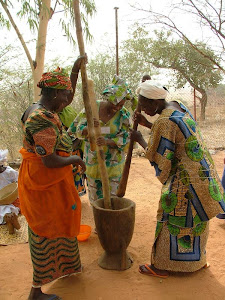
My garden spaces were “hand tilled.” I used a garden rake and a tool that I’m not sure its name. I dug up the grass as if it was sod and then placed it in an area of the yard the grass was a little thin. When I first did this three or four years ago I planned on buying a few more tools at some point. Not having the average assortment of tools actually has helped me with another goal…something I’ll tell you about in a minute.
So, the
exciting part!
My first seedlings, Mammoth Russian Sunflowers, peeped their
beautiful heads yesterday, six days after I planted the seeds. A bunching onion reared its little head yesterday
as well, just a little later. So, this
is what I’m planting: Mammoth Russian
Sunflowers, California Wonder Sweet Peppers, Bloomsdale Long-Standing Spinach,
Evergreen Long White Bunching Onions, Burpee’s Fordhook Zucchini’s, Connecticut
Field Pumpkins, Jack O’ Lantern Pumpkins, Cherokee Purple Tomatoes and Box Car
Willie Tomatoes. I started enough seeds
that would more than fill my garden spaces, so whatever I cannot use I am
donating to the Free Soil United Methodist Church for their community
garden. I still have many herbs and
flowers to plant in ground pots and flower beds, my gardening task for the
upcoming week.
So I made a mention to how gardening is going to help me
with future goals, well it starts with using tools just about anyone would have
access to. I’ll post a few photo’s so
you know what I’m speaking of (it’s easier than saying “the tool with the name
we shall not speak of”, since I do not know what their name is). The culture of my country, the USA, tends to
look at what we can accomplish by the way of high-tech gear. If you do not have the best, than don’t even
bother. However, you would be amazed by
what you can produce with 144 sq. ft. of soil, a few tools, organic fertilizer,
seed trays and some seeds.
 |
| The tool with no name. |
My goal has been to eventually work with an international
organization (I.e. WHO, UN, etc…) on food securities within third world
countries. Although my expertise is with
livestock, keep in mind I’m a Licensed Veterinary Technician (LVT), I knew
years ago I needed to gain a better understanding of farming practices too. I have volunteered and worked at a few farms
(Overlook Farm of Heifer International of Rutland, Massachusetts and Pond Hill
Farm in Harbor Springs, Michigan). I
learned so much from both places, it’s hard to put into words. The need for understanding started while I
was in the Peace Corp (Niger, West Africa).
If you have read my bio, I mentioned I was in the Peace Corp
for a short time and had to return for knee surgery. The brief time I was in Niger, I was staying
in a village called Fandoga Beri and I had an amazing host Mother, Hisa. I am forever grateful to her for what she has
shown me. Hisa, in her 50’s, showing me
how to create a vegetable bed with two tools and she made it look like it was
nothing. This very strong woman was very
patient and caring with me as I learned how to walk, taking my first steps on
gardening using my bare hands. Those
moments were the foundation for the importance to understand farming in
general, not just livestock. (By the way, this nostalgia of my
experiences in Niger with my wonderful host parents, Omarou Abdou and Hisa as
well as my amazing host brothers and sisters will be chronicled later.)
So with each growing season in Northern Michigan I take part
in, is a learning experience for me, something I hope to use when I am working
for stronger food security internationally.
For now, I’ll take you periodically through my gardening odyssey in hopes
that you see you do not need many tools or fancy gardening exploits to reap a
reward from the earth. Maybe my little
entries were serve as a conduit for backyard gardening at its simplest.





